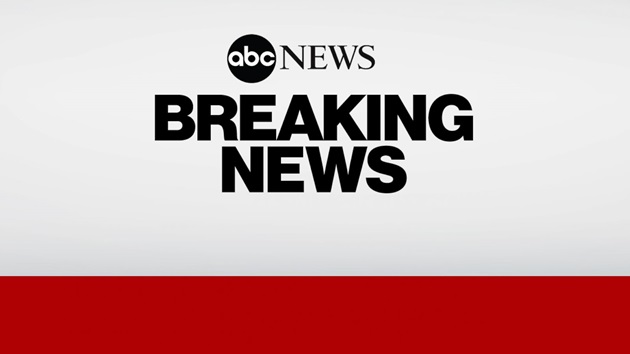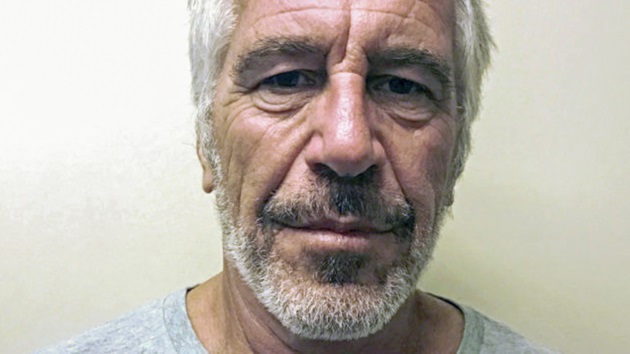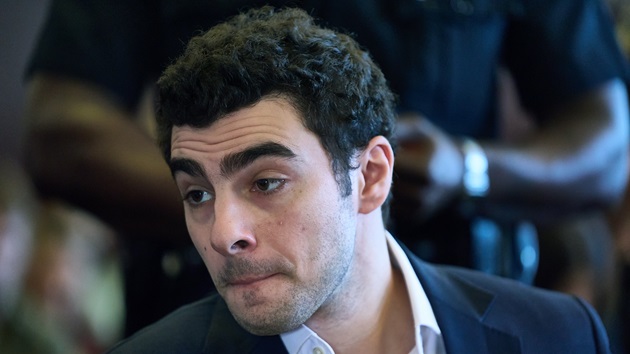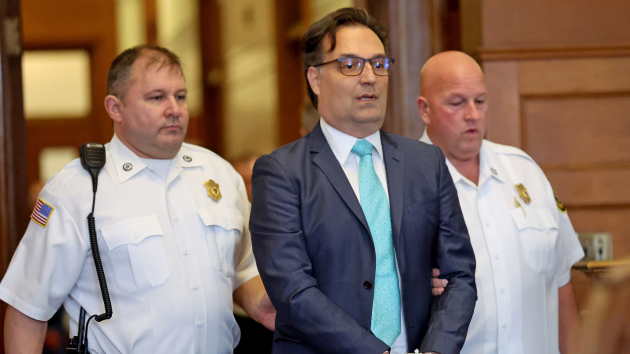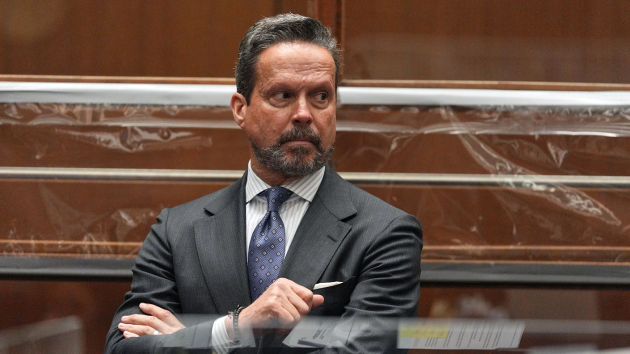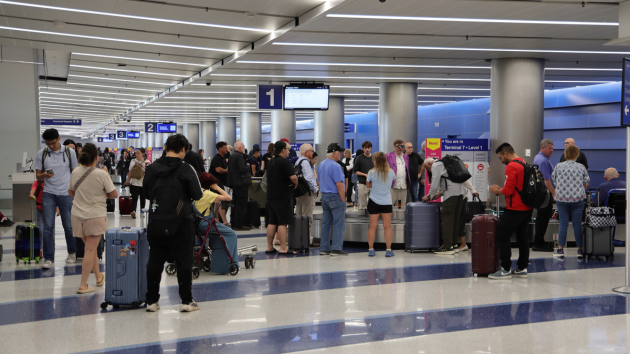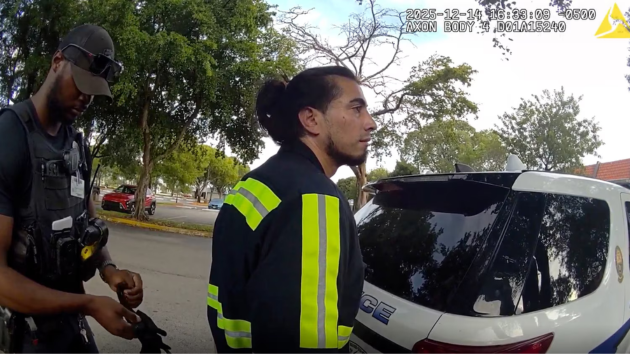
(LOUISIANA) — An immigration judge ruled Friday that Columbia University activist Mahmoud Khalil can be deported on grounds that he threatens foreign policy, as alleged by the Trump administration.
The stunning move may have repercussions on hundreds of other international students who have been targeted by the administration.
The Louisiana judge has given Khalil’s lawyers a deadline of April 23 to file applications for relief to stop his deportation. The judge said if they failed to make the deadline she would file an order of removal to either Syria or Algeria.
The ruling stunned supporters in the court as the judge issued it. Some supporters in the courthouse began to weep as she agreed with the government’s assertion that they did not have to provide any evidence in addition for the administration’s main claim against Khalil.
Khalil, a green card holder and permanent legal resident who is married to an American citizen, addressed the court after the hearing was adjourned and spoke to the judge directly, referring to a previous comment she made about due process and “fundamental fairness.”
“I would like to quote what you said last time that there’s nothing that’s more important to this court than due process rights and fundamental fairness. Clearly what we witnessed today, neither of these principles were present today or in this whole process. This is exactly why the Trump administration has sent me to this court, 1,000 miles away from my family. I just hope that the urgency that you deemed fit for me are afforded to the hundreds of others who have been here without hearing for months,” he said.
Judge Jamee Comans’ decision to remove Khalil fell in line with Secretary of State Marco Rubio’s assertion that his continued presence and actions in the country poses “adverse foreign policy consequence.”
The deportation hearing played out as a federal court case in New Jersey remains active. A judge in that case has ruled that Khalil cannot be deported while the proceedings are ongoing.
“Today, we saw our worst fears play out: Mahmoud was subject to a charade of due process, a flagrant violation of his right to a fair hearing, and a weaponization of immigration law to suppress dissent. This is not over, and our fight continues,” Marc van der Hout, an attorney for Khalil, said in a statement Friday. “If Mahmoud can be targeted in this way, simply for speaking out for Palestinians and exercising his constitutionally protected right to free speech, this can happen to anyone over any issue the Trump administration dislikes. We will continue working tirelessly until Mahmoud is free and rightfully returned home to his family and community.”
The immigration court has several limits on discovery and power to subpoena witnesses, as the judge mentioned several times on Friday.
The judge had given the government a deadline earlier this week to present evidence to back up several allegations it made against Khalil as grounds to deport him from the U.S., including that he misrepresented information on his green card application.
Despite Khalil’s team presenting evidence that went against the administrations’ narrative of their client, including interviews where he had denounced antisemitism, the judge did not rule on that rebuttal or information and instead agreed that she need not go further than a two-page memo Rubio penned and submitted to the court this week.
“Today’s ruling is a rush to judgement on baseless charges that the government presented no evidence to substantiate because no evidence exists. Our client, Mr. Khalil, has been unlawfully detained in direct retaliation of his advocacy in support of Palestinian rights,” said Amol Sinha, executive director of the ACLU-NJ, which is also representing Khalil. “This finding of removability is a dangerous departure from the fundamental freedoms at the bedrock of our nation that protect free speech under the First Amendment. We will continue to advocate for Mr. Khalil’s rightful release, and we are confident he will prevail.”
While a student at Columbia University, Khalil was part of a leadership group protesting the war in Gaza. Khalil took part in negotiations with school administrators demanding the institution cut ties with Israel and divest from Israeli companies. Khalil finished his graduate studies at Columbia in December and is set to graduate in the spring.
Khalil — who’s wife is about to give birth to his first child — was arrested by Immigration and Customs Enforcement at his Columbia housing in March.
The government on Thursday entered into evidence the memo signed by Rubio saying that he found Khalil’s presence in the U.S. “would compromise a compelling U.S. foreign policy interest.”
Attorneys for Khalil argued in a press conference on Thursday that the government — which entered the letter and other documents into evidence Wednesday — did not present evidence that Khalil’s presence in the U.S. poses an adverse foreign policy consequence.
The government has argued, under an obscure 1952 federal law called the Immigration and Nationality Act, that it believes migrants are deportable “if the Secretary of State has reasonable ground to believe that the alien’s presence or activities in the United States would have potentially serious adverse foreign policy consequences for the United States.”
Attorneys for Khalil argued that determination is for a judge to make, after the government presents evidence.
The memo signed by Rubio also makes the case that another person, whose name is redacted, should be deportable under the same law.
Rubio wrote that Khalil should be deported because of his alleged role in “antisemitic protests and disruptive activities, which fosters a hostile environment for Jewish students in the United States.”
Marc Van Der Hout, one of Khalil’s attorneys, sharply criticized the memo during a Zoom press conference on Thursday.
Rubio “talks about First Amendment activity in the United States and the effect on people in the U.S. His ‘determination’ has absolutely nothing to do with foreign policy,” Van Der Hout said.
Khalil’s attorneys said the government did not present evidence as to the alleged misrepresented information Khalil made on his green card application.
Copyright © 2025, ABC Audio. All rights reserved.
- US launches new strike on alleged drug boat, bringing total death toll to 99 - December 18, 2025
- House Democrats release another batch of Epstein photos - December 18, 2025
- Luigi Mangione’s pretrial hearing concludes as judge says he’ll issue ruling on evidence in May - December 18, 2025

